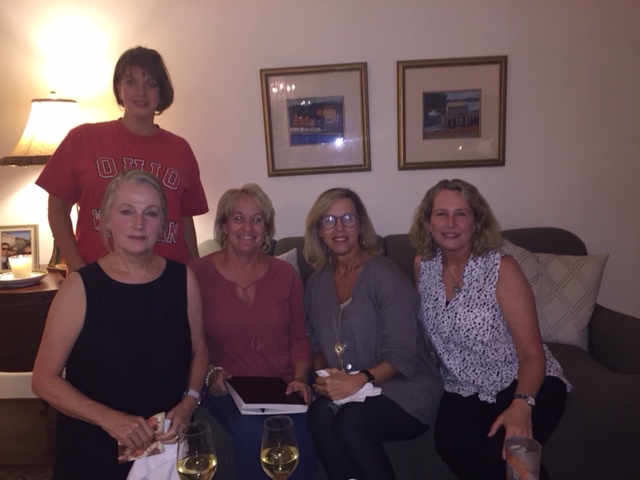Hostess: Mary Margaret
Attendees: Cheryl, Susan, Michelle, Amy, Lori, Janna, Allison, Pam M.
We rated this book 3.75 (mathematical law of averages) It was slightly polarizing with some members really liking it, and an equal amount who did not; the plot dragged for some yet , for those who liked this book it was a quiet, sensitive look into one family's life with its tragedies through several generations. The narrative was soft and eloquent for those who liked it and....boring for others. Darden, Pennsylvania was also deemed a boring place.

Excerpts from the New York Times review:
The novel takes place in 1972, between Easter and Christmas, when the family is waiting for news: Sam has been listed as missing in action. The story begins with Jozef’s death, which diminishes the resident family to two: Hannah and Bo, alone in the big house built by Jozef and surrounded by his presence. (Hannah’s husband died years earlier in a hunting accident.) Building and woodworking are in the blood. Here’s Bo, for instance, on the day of his grandfather’s funeral: “He . . . sat down at a pale and simple table he had made with his grandfather out of beech felled on their land. He ran his hand across the surface of it as if to feel what he could of those days when he first brought the table into the kitchen and his grandfather touched the surface of it in the same way, and said, Well, son, I do believe you have found your work.”
Bo now runs the roughing mill, sharing the narrow profits with his workers. He and Hannah keep a dog, chickens and a cow; in the past they had kept goats. The connections between this family and the land run deep; on it they have raised food, shot deer, built houses and made furniture. Jozef’s orchard still bears fruit.But this domestic idyll has been carved out of a wild region in northeastern Pennsylvania, a place full of tempestuous weather and the danger that wilderness contains. Rattlesnakes, predators, rough terrain and, of course, guns. The men bring their own danger to any landscape.
The Vinichs are hardworking and responsible, good Catholics and good citizens. Their success seems like an immigrant’s dream, but the family is shadowed by grief. Hannah’s husband came home from World War II a silent, damaged man. While he was fighting in France, the carnage became too much to bear, and one day he walked away from his unit. Later he was accused of desertion, and when he came home he was put in military prison. He finally returned to Dardan, disgraced and broken. He never recovered. When he died the family suffered doubly, from the loss of his life and of his reputation.
Another local family has a complicated connection to the Vinichs. Jozef bought land from Walter Younger, during a period of financial duress. The Youngers were reluctant to sell and resented the loss of their property. They continued to hunt on it as though they still owned it. So tension between the families was already high before the accident: It was Paul Younger, Walter’s son, who shot Hannah’s husband in the heart. Hannah knew that her husband had never recovered from the war; she understood that she’d lost him before the shot. But she could not forgive the man who pulled the trigger.
In the third generation the two families have a more complicated connection, equally intense: Ruth, Paul Younger’s daughter, is nowpregnant with Sam’s child. The families, who have good reason to be at war, now have an urgent reason to find peace. Bo becomes a mediator between his mother and Ruth, and he also pursues a last clue as to his brother’s whereabouts.
Krivak is an extraordinarily elegant writer, with a deep awareness of the natural world. In spare and beautiful prose he evokes an austere landscape, a struggling family and a deep source of pain. The narrative follows the two families as they attempt to accept their deepening connection and Sam’s continuing absence. Krivak sets the grandeur of the mountain as a backdrop to the intimate drama of the heart.
There is no answer to the question of war, how much it can demand or who should suffer. Krivak, in this moving and eloquent book, reminds us that we are powerless over this presence in our lives. It will return, generation after generation, to our families. It will have what it will.
*****************************************








